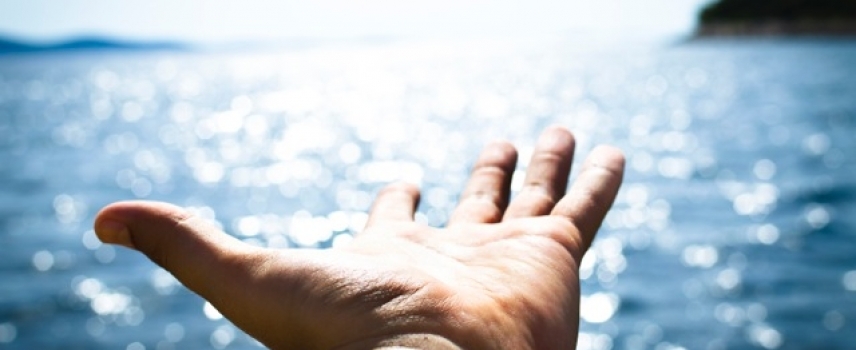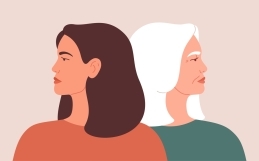
“One of the greatest challenge in creating a joyful, peaceful and abundant life is taking responsibility for what you do and how you do it. As long as you can blame someone else, be angry with someone else, you are not taking responsibility for your life.”
–Iyanla Vanzant
When we face challenges in life, some of us function well, some muddle through, and some don’t do well at all. There are some people who have a hard time functioning adaptively even under normal circumstances, so when they’re faced with a challenge, they fall apart. Most of us find a way to cope with life’s challenges without engaging in much deep thought; we simply keep doing what we normally do, even if it isn’t working. Instead of solving our challenges, we maintain them; we don’t make them worse, but we don’t make them any better either. That’s because we usually see ourselves as being pretty reasonable. We don’t look closely at ourselves and instead think about the ways that certain people or circumstances in our lives need to change in order for our challenges to be resolved. We believe that if only we could make other people see things the way we do, everything would be okay. These thoughts and actions usually keep our anxiety at bay for a little while, but when another challenge comes our way, we’re anxious once again. It might seem easier to live this way, because we don’t have to take responsibility for the ways that we maintain and perpetuate our challenges. We think that taking responsibility means taking the blame; and since it makes us anxious to feel blamed, we aim to reduce our anxiety by placing the blame elsewhere. But the truth is, this doesn’t really solve anything.
So what if we could take responsibility for our challenges and actions without taking blame? And what if we could do this by being self-aware when challenges happen?
Taking Away Blame
As I said before, many of us seek to blame others when things don’t go according to plan. We think, “If I don’t feel happy, other people must be the reason for it.” Some of us, on the other hand, have a tendency to always find fault in ourselves. We think, “I’m to blame for everything that goes wrong in my life. If only I could avoid making so many mistakes, I could be free to live a better life.” Whether we blame others or blame ourselves, this rigid way of looking at situations doesn’t bring lasting change. Each time we face a new challenge, we instinctively seek to place blame somewhere, instigating a cycle of disappointment. We may become resentful of people, blaming them for disappointing us and then cutting them out of our lives as if they were trash to be thrown away.
Whether we see the fault in others or in ourselves, we’re missing the bigger picture: relationships are systems, and each person in a relationship deeply influences the other’s capacity for emotional flexibility. Lasting growth begins with learning to observe ourselves in our relationships, being aware that problems do not reside within individuals, but rather in the interconnections between them. When we see our relationships this way, our goal becomes to understand how we may be contributing to our challenges in the ways we interact with others when issues arise. It can lead us to take personal responsibility in our lives and stop playing the blame game. It isn’t easy to think this way, but once we can manage it, we gradually begin to transform our lives, even in the most challenging of circumstances. As we become more aware of the effect we have on others, our sense of self and integrity grows. Seeing the role we play in our relationship patterns opens us up to greater honesty, humility, and wellbeing—not only for ourselves, but for the people we’re in relationship with also.
Undoing Unhelpful Reactions
So how do you undo unhelpful behaviors that may be contributing to your challenges? First you change the way you think. You become open to the idea of taking responsibility for your actions without taking blame. Then you observe yourself in your reactions to people and situations in your life, looking at your automatic responses without judging or trying to change them. Once you do this, you may want to ask yourself, “Are these automatic responses to people helpful or not helpful?” If they aren’t helpful, you could then ask yourself, “How can I change my response in this situation without taking blame? How can I act in ways that are more in line with my values?” Basically, undoing unhelpful behaviors involves observing your instinctive reaction and then doing something different. It involves being mindful of your actions so you can evaluate them without judgment, independently deciding what’s best.
It’s helpful to keep in mind that there is no single or correct way to go about facing challenges. Many of us hold the idea that there is only one right way to go about our lives. This is the foundation for blaming ourselves and others when our lives don’t fit into a tidy package. There are many ways to do things and multiple ways to view life. Going through tough times doesn’t mean we’ve done anything wrong; it means we’re being given an opportunity to take responsibility for our lives and change our unhelpful behavior patterns. Our options are endless, and we always have the resilience to change our perspective and our circumstances. So do you want to use your energy for blaming others, or for personal growth and exploration? It’s up to you.
Talk soon,
Dr. Ilene
Article edited by Dr. Denise Fournier





